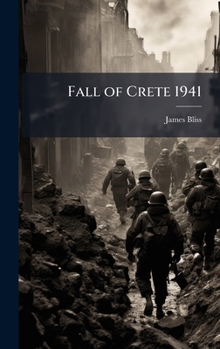Fall of Crete 1941
On 20 May 1941, Generaloberst Kurt Student's Luftwaffe XI Fliegerkorps conducted the first operational airborne invasion in history to seize Crete. Major-General Bernard Cyril Freyberg VC, 2nd New Zealand Expeditionary Force, commanded the British forces defending the island. Freyberg, forewarned of the details of the invasion, possessed numerical superiority over the enemy, but was defeated within twelve days. Freyberg, later blamed for the defeat due to his perceived faulty defensive dispositions, was dealt a losing hand from the start. His troops consisted of those that could be rescued from the failed Greek Campaign and lacked sufficient weapons, communications, and transport to conduct the defense. Despite the best efforts of the Royal Navy, overwhelming Luftwaffe air superiority in the absence of the Royal Air Force isolated Crete and the relentless drive of the attacking German forces captured it. Poor tactical leadership by Freyberg's subordinate commanders and their failure to prosecute his operational plan led to defeat by the barest margin. While a tactical loss, Freyberg's destruction of the 7th Flieger Division resulted in Hitler never considering an operational airborne assault again. Freyberg, although accepting responsibility for the defeat, should not be held entirely culpable for the loss of Crete.
This work has been selected by scholars as being culturally important, and is part of the knowledge base of civilization as we know it. This work was reproduced from the original artifact, and remains as true to the original work as possible. Therefore, you will see the original copyright references, library stamps (as most of these works have been housed in our most important libraries around the world), and other notations in the work.
This work is in the public domain in the United States of America, and possibly other nations. Within the United States, you may freely copy and distribute this work, as no entity (individual or corporate) has a copyright on the body of the work.
As a reproduction of a historical artifact, this work may contain missing or blurred pages, poor pictures, errant marks, etc. Scholars believe, and we concur, that this work is important enough to be preserved, reproduced, and made generally available to the public. We appreciate your support of the preservation process, and thank you for being an important part of keeping this knowledge alive and relevant.
Related Subjects
History




